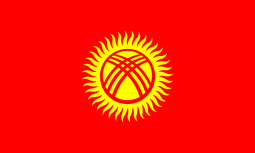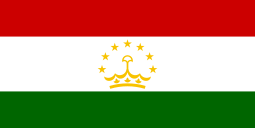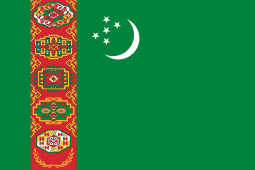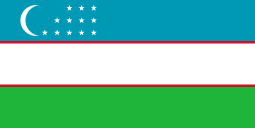GOST 7.79-2000
GOST 7.79-2000 (Система стандартов по информации, библиотечному и издательскому делу. Правила транслитерации кирилловского письма латинским алфавитом) is a standard for transliterisation from Cyrillic to Latin script. It came into effect 2002-07-01[1].
GOST 7.79-2000 contains two transliteration tables.
- System A
- one Cyrillic character to one Latin character, some with diacritics – identical to ISO 9:1995
- System B
- one Cyrillic character to one or many Latin characters without diacritics
GOST 7.79 System B
| Cyrillic | Roman | Note | ||
|---|---|---|---|---|
| А | а | A | a | |
| Б | б | B | b | |
| В | в | V | v | |
| Г | г | G | g | |
| Ѓ/Ґ | ѓ/ґ | G` | g` | ѓ in Macedonian, ґ in Ukrainian |
| Д | д | D | d | |
| Е | е | E | e | |
| Ё | ё | Yo | yo | in Russian and Belarusian |
| Є | є | Ye | ye | in Ukrainian |
| Ж | ж | Zh | zh | |
| З | з | Z | z | |
| S | ѕ | Z` | z` | in Macedonian |
| И | и | I, Y` | i, y` | not in Belarusian, y` for Ukrainian |
| Й/Ј | й/ј | J | j | ј in Macedonian |
| І | і | I, I` | i, i` | i` only before vowels for Old Russian and Old Bulgarian |
| Ї | ї | Yi | yi | in Ukrainian |
| К | к | K | k | |
| Ќ | ќ | K` | k` | in Macedonian |
| Л | л | L | l | |
| Љ | љ | L` | l` | in Macedonian |
| М | м | M | m | |
| Н | н | N | n | |
| Њ | њ | N` | n` | in Macedonian |
| О | о | O | о | |
| П | п | P | p | |
| Р | р | R | r | |
| С | с | S | s | |
| Т | т | T | t | |
| У | у | U | u | |
| Ў | ў | U` | u` | in Belarusian |
| Ф | ф | F | f | |
| Х | х | X | x | |
| Ц | ц | Cz, C | cz, с | c before i, e, y, j |
| Ч | ч | Ch | ch | |
| Џ | џ | Dh | dh | in Macedonian |
| Ш | ш | Sh | sh | |
| Щ | щ | Shh, Sht | shh, sht | shh for Russian and Ukrainian, sht for Bulgarian |
| Ъ | ъ | A` | a`, `` | two grave accents for Russian, a` for Bulgarian |
| Ы | ы | Y` | y` | in Russian and Belarusian |
| Ь | ь | ` | grave accent | |
| Э | э | E` | e` | in Russian and Belarusian |
| Ю | ю | Yu | yu | not in Macedonian |
| Я | я | Ya | уа | not in Macedonian |
| ’ | ' | apostrophe | ||
| Ѣ | ѣ | Ye | уе | in Old Russian and Old Bulgarian |
| Ѳ | ѳ | Fh | fh | in Old Russian and Old Bulgarian |
| Ѵ | ѵ | Yh | yh | in Old Russian and Old Bulgarian |
| Ѫ | ѫ | O` | о` | in Old Bulgarian |
| № | # | |||
This standard (System B) appears to have been used in 2014 for the transliteration of street names on street signs in Moscow; its unusual appearance and non-intuitive sound values gave rise to criticism in the media.[2]
National adoptions
The verbatim translated text of ISO 9 is adopted as an inter-state standard in the countries listed below (the national designation is shown in parentheses). Other transcription schemes are also used in practice, though.









gollark: PotatOS kills this and runs its own special process manager.
gollark: Yep.
gollark: I really need to have people stresstest my stuff more.
gollark: I'll patch that in TomatOS 0.59292.
gollark: Ah yes, clever.
References
- "ГОСТ 7.79-2000, скачать ГОСТ 7.79-2000". gostexpert.ru.
- Москва готовится к оккупации, иначе происходящее не объяснить ("Moscow is preparing for occupation - otherwise one can't explain what goes on")
- "Система стандартов по информации, библиотечному и издательскому делу (СИБИД), действующих в Республике Беларусь", item 55 (Sistema standartov po informacii, bibliotečnomu i izdatel'skomu delu (SIBID), dejstvuûŝih v Respublike Belarus')
This article is issued from Wikipedia. The text is licensed under Creative Commons - Attribution - Sharealike. Additional terms may apply for the media files.